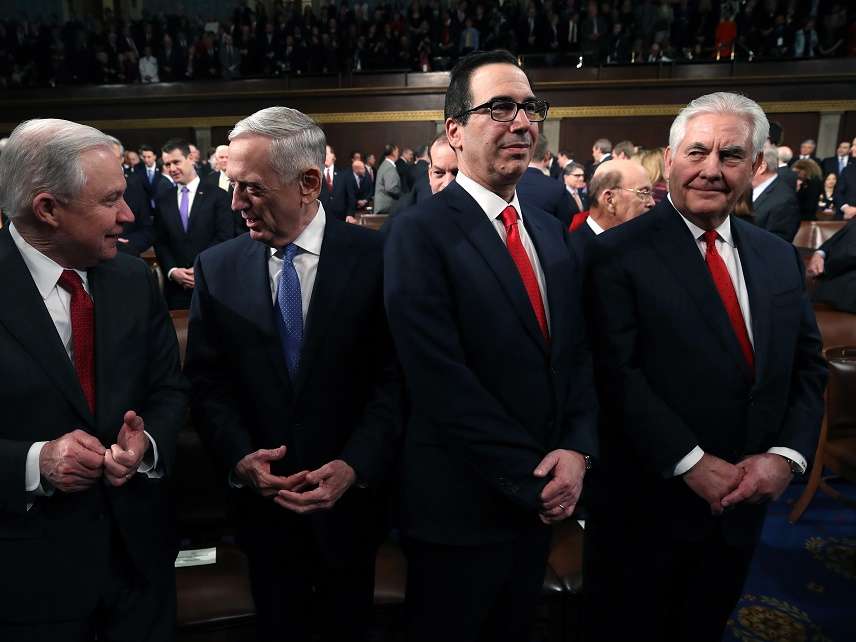When It Comes to the Escalating War on Terror, Trump's SOTU Was Heavy on Bragging, Light on Details
The war will continue until further notice.

Washington is escalating the global war on terror, expanding the U.S. military footprint across the Muslim world while ramping up military operations.
President Donald Trump boasted about some of this in his State of the Union address last night. He urged Congress to ensure that the military "continue to have all necessary power to detain terrorists—wherever we chase them down," and he announced that he had signed an executive order keeping the detention camp at Guantanamo Bay open.
"Our warriors in Afghanistan also have new rules of engagement," Trump said of the country where the U.S. is now in its 18th year of war. "Along with their heroic Afghan partners, our military is no longer undermined by artificial timelines, and we no longer tell our enemies our plans."
Trump also touted progress against the Islamic State in Iraq and Syria (ISIS), saying that "the coalition to defeat ISIS has liberated almost 100 percent of the territory once held by these killers in Iraq and Syria and in other locations as well." Nonetheless, he quickly added, "there is much more work to be done. We will continue our fight until ISIS is defeated."
In practice, the U.S is keeping thousands of troops in Iraq and Syria, the second IS in ISIS. The terror group, meanwhile, has spread to Libya—and Afghanistan.
Not long ago, the State of the Union was the place to announce the imminent defeat of "core" Al Qaeda or to boast that there were no Americans left fighting in Iraq. Today, American are fighting in Iraq again. The Pentagon has stopped offering details of troop deployment there or in Syria, for "tactical surprise"; the most recent report revealed 1,720 troops in Syria and nearly 9,000 in Iraq.
Trump has taken advantage of the bipartisan consensus that has coalesced over the last decade and a half on the war on terror. Congress, under both parties, has declined to assert its authority in making war.
Three successive administrations have ordered U.S. operations in Afghanistan and across the Muslim world under the 2001 Authorization for the Use of Military Force, which targeted the perpetrators of the September 11 attacks and "associated forces." The average ISIS fighter was about 8 years old on 9/11.
Secretary of State Rex Tillerson, meanwhile, suggested earlier this month that the U.S. military presence in Syria has to be open-ended to prevent a resurgence of ISIS. Congress never managed to hold a successful vote on an Authorization for the Use of Military Force for the campaign against the Islamic State, or for any military operation following the Second Iraq War.
In his State of the Union address, Trump called on Congress to end the so-called defense sequester, which modestly limited growth in military spending. The Republican majority is likely to give him this, and pretty much anything he asks for when it comes to the war on terror. What it won't give him is any oversight or pushback. The war on terror has no end in sight.


Show Comments (26)